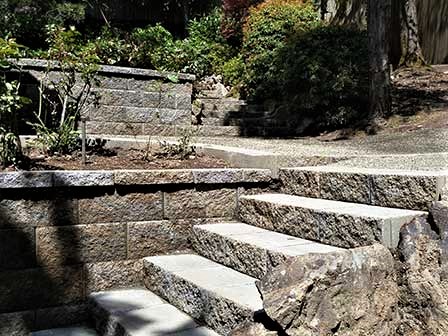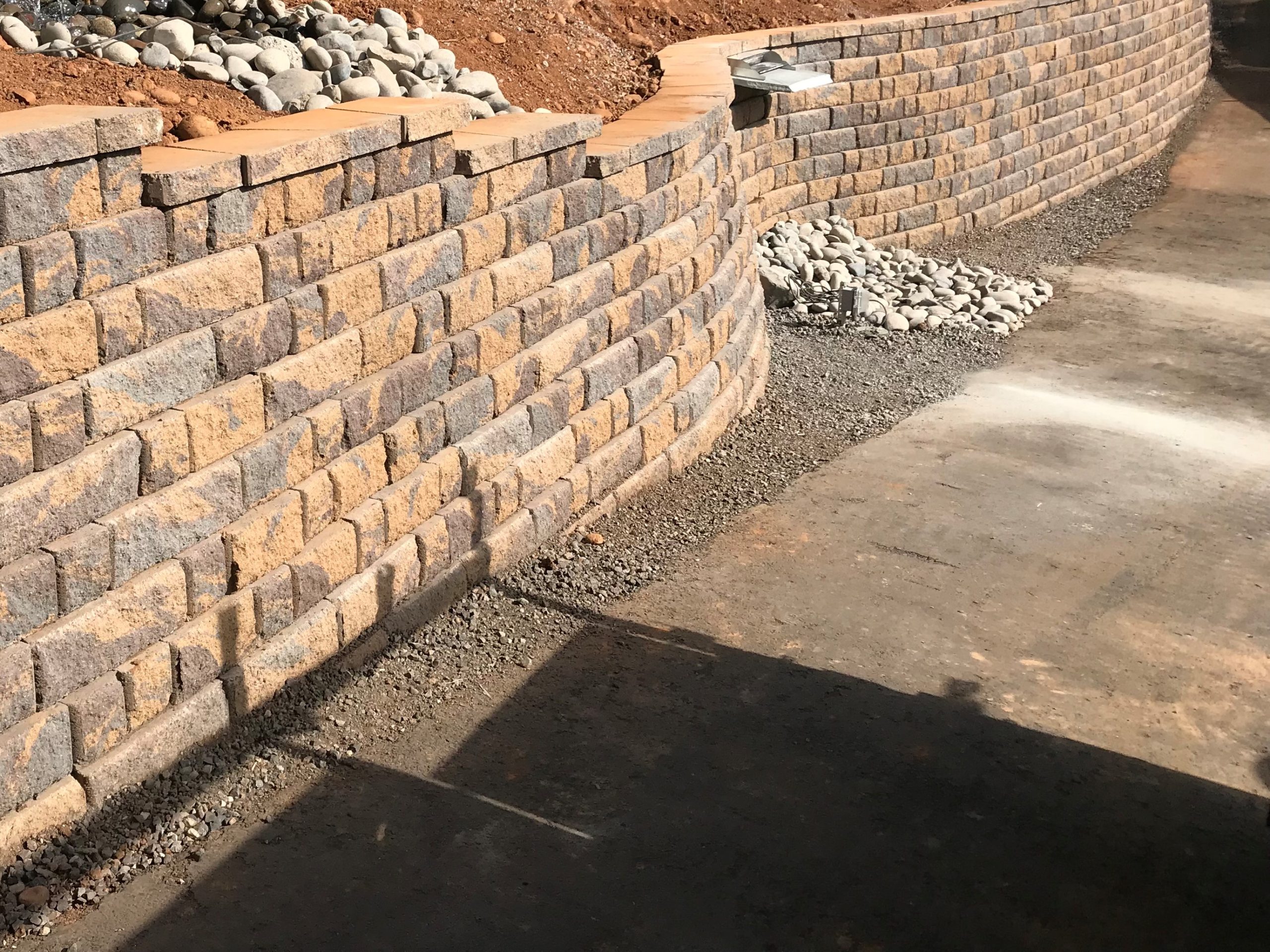At Frontier Landscaping we receive many requests for Retaining Walls. This is one of the more frequently discussed additions with regards to a clients’ hardscaping, when deciding on their Landscape designs. This can be with a brand-new landscape or an addition to an existing landscape. Some of our clients live on more sloped areas and it is not unusual to want to create flat or level spots within the Outdoor areas to get more usage from the property. When deciding on a Landscape or improvement to the existing Landscape, at Frontier Landscaping we discuss the best way to increase the living spaces and or enhance by adding these features to the design.

A Few attributes of adding retaining walls
- Creates more useable Outdoor Spaces
- Rapid Installation
- Creates vertical, horizontal areas as well as adding curvature
- Concrete, wood, synthetics, brick, blocks, etc.
- Wide variety of colors, sizes and textures
- Provides support
One method of building Retaining Walls consists of modular concrete blocks that interlock with each other. They can be used to hold back a sloping face of soil to provide a solid, vertical front. Without adequate retention, slopes can cave, slump or slide. With construction of our Retaining Walls, higher and steeper walls can be constructed with the ability to retain the force of earth pressure created by the backfill soil, giving more flexibility to your design choices.
Retaining Walls can be installed in a wide variety of colors, sizes, and textures. They can incorporate straight or curved lines, steps, and corners. They are ideal for not only slope support, but also for widening areas that would otherwise be unusable due to the natural slope of the land. Retaining walls are often used for grade changes, and for other functional reasons such as widening driveways, walkways, or creating more space in a patio outdoor area. More usable area for your Landscapes and Outdoor Spaces.

Retaining Walls provide lateral support to vertical slopes of soil. They retain soil which would otherwise collapse into a more natural shape. The retained soil is referred to as backfill.

